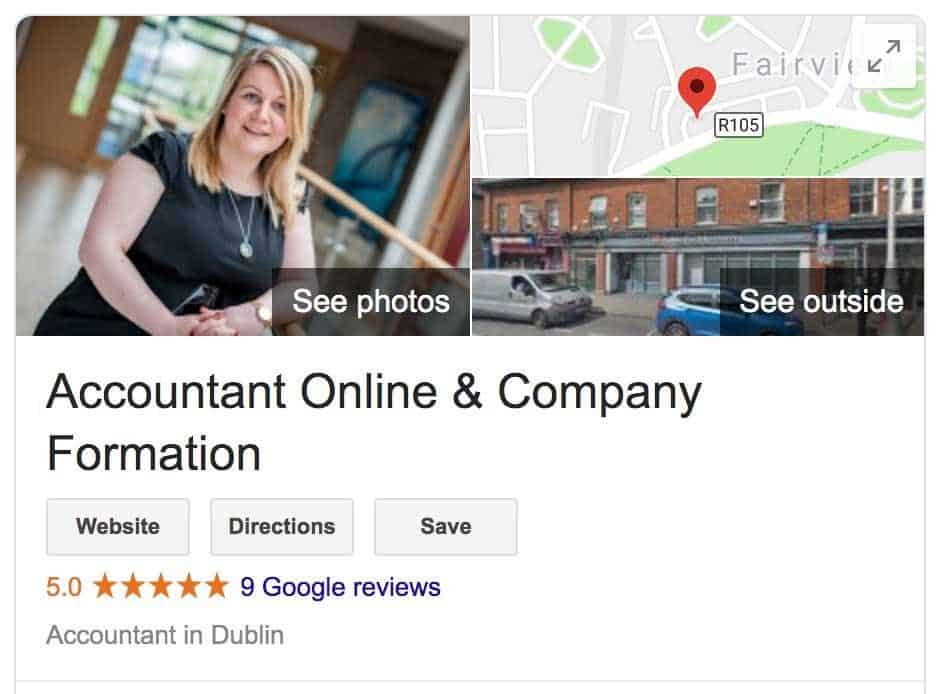Assuming the technical aspects of your website are set up, then SEO for your startup or new small business can focus on the following two tasks.
Distilling SEO down to its most important core means you will focus on very high quality researched and written content and link building.
Leslie runs BeFound SEO agency that has worked with Kinore, a few SaaS startups, and many small businesses throughout Ireland and the UK. He is obsessive about SEO, conversions, growing traffic and hill walking. You can get in touch on his website here.
Why invest in SEO?
Over the long term SEO is the absolute best source of targeted new customers with the best ROI. Assuming your service, product, and content pages are well researched and targeted then they will attract exactly the right type of customer. Researched here is not product or service related – you are the best to know that. It is the way you are describing your solution to the market and the words you use in those descriptions.
SEO is compound, advertising is like simple interest. Switch off the adverts and you disappear from your potential customer. With SEO you can aim higher and higher into more competitive streams of new business.
For example a new website may bring in a few new customers with a blog post titled Setting Up a Company in Ireland From Abroad. With long term SEO, the same website will eventually target and rank at the top for better keywords like – company formation service, company registration, etc.
SEO creates a stronger more authoritative website. This authority allows you to quickly and easily offer new services, like virtual office services, and rank these services quickly and bring in more new customers.
Keyword research
Keyword research is the base for all your future SEO content and efforts. It is important. This research takes some time, but it will result in laser targeted content and faster results.
I recommend two paid Keyword tools Keyword Keg and Ahrefs, and comparing the data with Google Ads keyword data. There are lots of great guides on keyword research if you are doing this yourself. As this is the basis for your long term success, I suggest bringing in an expert.
The next step is competition research. For this you will need a subscription to Ahrefs. There is little a competitor can hide; you can map out their whole strategy and understand what resources you need to dominate your market.
In Ahrefs you can view who your competitors are based on keywords. These are my UK competitors.
This one section allows me to view the keywords that are unique to each competitor, common keywords, and keywords that are unique to my own website.
Within Ahrefs you can view the pages that bring in the most traffic and the keywords to each of these pages. An easy way to drive relevant traffic at the start of all new websites is to export all keyword data for each competitor along with traffic and keyword difficulty. Then sort the data to find keywords with potential traffic and a low keyword difficulty.
Content and page development
The completed keyword list needs to be sorted into bottom, middle and top of funnel. Websites with well targeted and great content will grow much faster. There are three levels of content development:
- TOFU – informational
- MOFU – educational, case study, etc.
- BOFU – buying
The time between these stages can be months or immediate. Examples of top, middle and bottom are:
- Interest from person outside of EU setting up company in Ireland
- Page with content target at how to set up a company
- Company setup buying page
If a prospect lands on page 1 we need to offer clear calls to action to page 2 and 3. And again from page 2 to 3. We need to record the visitor for future retargeting adverts and do our best to capture their email on the first visit.
Using SEO with great content you will be able to capture a customer’s attention at each stage of their buying process. The more content you have in the search results at each stage, the better chance you have of them becoming your customer rather than your competitors.
Each of these content stages can also be used with marketing automation software and retargeting ads.
A note to Startups – page targeting is an area where startups and traditional new businesses differ slightly. It is standard to target the home page of a business site towards the main and hardest to rank for service. The homepage of startups should be targeted only at the brand name – even before it is a brand. How a startup’s product or service is described changes fast over the first few years. Trying to retarget a page to reflect this change slows down growth, startups should always setup content silos and not use the homepage.
Google My Business
A Google My Business listing is a must for all new businesses. It is usual for a new business to target a specific location, Dublin or Galway, or even the whole country. A business with more than one location can have a GMB listing for each.
The information in your GMB listing is used to display the informational panel below for brand searches.
This information is also used in the Google Maps displayed at the top of the search results for local and national queries.
The maps listing is important for local businesses as it drives more business than the search results listed just under.
This is another area where there is different for startups. Due to the nature of startups targeting a worldwide or national audience a GMB listing is less useful.
Google Ads or SEO
Spending on Google Ads or SEO is one of the big questions right at the start for any business and deciding where the marketing budget is spent.
From a conversion optimisation perspective it is great to have some data from Ads. As SEO is a longer process to bring in business, knowing that your target keywords convert is reassuring before investing heavily in SEO.
If you need new business immediately Google Ads is the best place to spend your budget. Bear in mind as soon as you switch off the ads the leads stop, unlike SEO.
Link Building and Content Marketing
Writing the best content on the internet will do little for your sales process is your website has little authority. Websites build authority by having links from other websites.
Most companies have great difficulty when they try to build links using their internal team – but it can be done. Here are the main link building strategies.
- Local/niche directories
- Business connections
- Guest posts
- Skyscraper outreach
Local Directories
Submitting to local directories like Yelp, Golden Pages, etc., is a one off at the start of all projects. Your Google My Business must be already approved to ensure consistency between the information in Google, your website, and other citation website – consistency of company name, address and telephone number is important.
Every business section will have specialised listings directories. We keep an inhouse list for all the sectors we work in. These are usually easy quick wins.
Neither of these add much authority to your website, but they help with location targeting and diversity of linking domains and anchor text.
Business Connections
This bucket includes being listed on your local chambers and any other body where you are a member. As a business owner most people I socialise with are also business owners. Ask them to list you on their website.
Ask your suppliers if you can be listed or give them a glowing testimonial they can use on their website. Customers can also be an excellent source for some businesses – see the footer links on most business websites back to their web design company.
Guest Posts
Guest posts work brilliantly when you keep in mind minimum metrics. Don’t spend your valuable resources trying to write for low quality websites. Our minimum metrics include domain rating from Ahrefs, domain authority from Moz and traffic to the target website. Traffic is the most important metric.
Our process for guest posts is finely tuned, we have been at it for a while.
- Find a list of target sites where you want to be published
- Email them
- Agree a topic
- Send and publish
There are a lot of moving parts in this and it usually makes financial sense to outsource to an agency.
Skyscraper Outreach
Depending on the type of business you are in this can work very well or be a complete flop. The idea is to create the best single piece of content on a topic. Then find at least 300 other websites that link to something similar and email these websites suggesting that your content would be a useful resource.
This has been done to death in some niches, but in others it still works very well.
If you have any questions or need further advice please get in touch.
You can call us on 01 905 9364 or send an email to hello@kinore.com.
Kelly is the Marketing Manager at Kinore. Kelly is passionate about making the complexities around running a business simple to understand and accessible to the every-day person. Kelly holds a Bachelor of Science (BSc) in Marketing from Dublin Institute of Technology.





